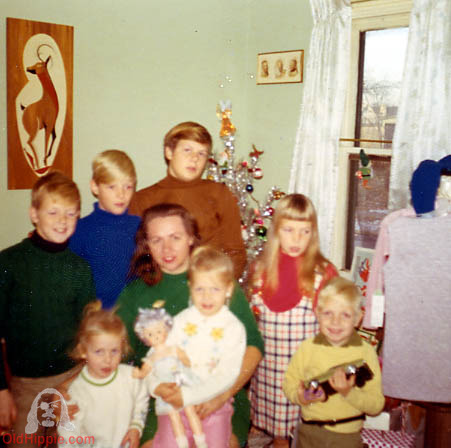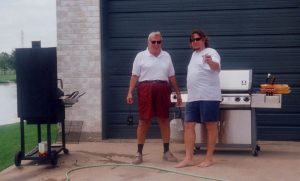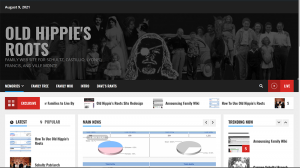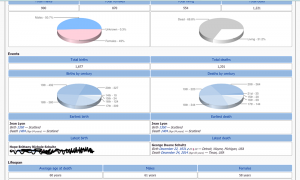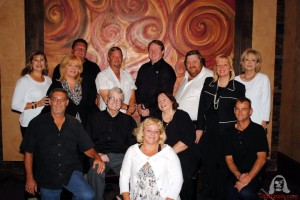Born: April 22, 1935
Died:
Parents: Ralph M. Castillo & Francis Lyon Castillo
Siblings: Noel M. Francis, Luis Castillo, Ralph G. Castillo
Children: David D. Schultz, Douglas B. Schultz, Daniel J. Schultz, Delores ‘LaRee’ Schultz Lochbaum, Donald R. Schultz, Deborah ‘Terry’ Schultz, Diana Schultz Ard
The below was submitted by Carmen on June 6, 2013.
———————————
Now and Then (Memories of WWII)
By Carmen Schultz
June 6, 2013
I just turned 78 last month and I am amazed when I think of how much this old world has changed in all that time. Some things are good and some are debatable. I do believe though that though we have experienced so many wonderful things that have helped to ease our work…some of those very same things have made us a more dependant people and a bit isolated in many respects. Yes…we definitely have more time for entertainment and our enjoyment but it seems that so many things are tending to revolve around only ourselves and our wants and likes instead of bringing others into the mix. We have lost our social ability. I’m not pulling “well in the good old days” routine on you…I’d just like you to know how things have changed and how grateful we should be that we have been so blessed throughout the years, BUT that we should also be careful and not let some of these wonderful things take away our closeness or our ability to THINK FOR OURSELVES. We are our government and if we are not careful…we’ll be losing some of the things we’ve so cherished for so many years.
When I was young being patriotic wasn’t a dirty or silly word…we thrived on it. Most everyone had a flag out and not just on Veterans Day. My Dad made a V (for Victory) trellis and painted it red. It looked outstanding attached to our little white house. We didn’t have a lot of communication but everyone knew who the vice president and president were and who we were fighting a war against and how to let our service men know their value. You ask people now and who knows what answer you’d get. Each family had their own Victory garden in which they raised their own fruit and vegetables. Gas was rationed (our service men needed it over seas and they came first) so we were more than willing to do our share. There were few trucks going over state lines to bring in supplies so we made do with what we had and we grew our own food whenever possible. There was usually just one car per family and in fact nothing was in excess. One radio per family and that was a fairly large piece of furniture as they had not yet devised a way to make radios smaller. It usually sat in the living room for all to sit together and listen. Mom would polish that radio to make it shine she was so proud of it. We all valued what we had. On Sundays we (kids) would spread out our portion of the funny paper on the floor, lie on our tummies and listen as one of the commentators read it to us. One phone per family and the line was usually hooked to two or three neighbors homes. We were all on the same line but with different rings. A long ring was for us, two short rings for the neighbor next door possibly a long and a short ring for yet another neighbor sharing the line. If we picked up the phone for someone else’s ring we could hear what they were saying but no one would do this as it was considered extremely rude.
There were no garbage trucks…we divided our trash in various areas. The garbage like coffee grounds, peelings, etc. would be placed in a small container and every day after meals it was up to the children in the family to take it out, dig a hole by the side of the garden and bury it. As time went by this made for excellent potting soil that would help our garden to grow. Papers were all put in the garage, and every couple weeks bundled up. The same was true with the cans…paper was removed, cans were washed, the other end was opened and then the can was smashed flat and put into a bag to also await being taken to the depot. Each family had a wagon and it was the children’s responsibility to get these things delivered to the depot for our service men. We’d stop at other houses along the way to pick up their bundles of paper and cans as well. Now our favorite thing to do was pick up the soda bottles and return them to the stores because we would receive 2 cents a bottle which was ours for candy or the movies. Anything else that could be considered trash was burned out back in the burning barrel.
We did have milk trucks that would come around and deliver our milk to our homes a couple times a week. Each house had a metal box outside on their back porch where they would leave their notes as to what was to be delivered the next trip plus leave money in the box for the current delivery. Amazing no one ever thought of stealing that money. We could order milk, cream, ice cream, butter etc. (that was before the war started).
Our kitchen stove was a gas four burners attached to an oven on the side and over the burner was a shelf for our salt and pepper. This was all on four legs. Attached to the side of the shelf was a small metal pocket where the large match box would fit in. We would have to use matches to light the burners and oh my goodness many an eyebrow was fringed by someone trying to light the oven and getting too close when the gas popped. My dog loved to sleep under the stove as it was one of the warmest parts of the house. The top of the oven was also a good place to let the bread rise. We also had a heating stove in the living room and a pot bellied stove in the hallway between my brothers and my bedroom. Michigan was cold in the winter so those are three of the places we’d crowd around during winter nights. Sitting at the table playing games, or in the living room singing songs with Mom playing the Guitar. Also great evenings after washing dishes when we would all gather in the living room to listen as Mom would read to us (Black Beauty, Swiss Family Robinson etc.)
We were rationed on so many things though because of the war…bacon, sugar, coffee, gas…needing stamps for each. If you baked something sweet, it wasn’t quite as sweet as before the war and you would share it with a neighbor. Even if you had the money for the gas, if you had no stamps there was no gas for you. People would ride places in groups and give their stamps to the person driving the car. There were also lots of bikes around. Yes there really was more of a togetherness going on. Forget nylons (pantyhose wasn’t invented yet), stamps or not…you just could not find nylons for sale. All the material used to make nylons now made parachutes. Women found a way around that though by spraying their legs with a spray that matched the color that nylons would otherwise be.
Fried foods were not a dirty word either and in those days most everything was fried. When we fried bacon, the grease was saved in a covered canister on top of the stove and later used to fry up other foods. Sliced potatoes were especially good fried in bacon grease. All old grease was put into cans, put into the frig to harden and taken to the depot to eventually be used for the war effort. Everyone and I mean everyone was working hard to help the war effort. It was one unit THE AMERICAN PEOPLE, doing whatever they could and giving up without complaint so that our service men knew we were behind them all the way. It’s not really like that anymore and that is a sad thing. Butter was also rationed and truthfully there really wasn’t that much on the grocery shelves but we made do and shared amongst ourselves. Oleo (that was what margarine was called) came in 1 pound boxes and was pure white like lard. There was a small pouch inside though so you could color it yourself by mixing the yellow coloring with the lard look alike.
We have central heat, air conditioning, computers, cell phones, new finagled machines that have taken the work out of our previous lives, and yes so much of that is good.
In my early life…we had none of these things. We had screens on both windows and doors and they were opened most the time to let the fresh air in and some of the community as well. We could see our next door neighbor hanging out the laundry and holler our hellos to her. We never locked our doors as there was no need to. If by chance someone did cause us trouble, four or five of our neighbors would be there Johnny on the spot to protect us and we would be there for them as well. We spent more time out in lawn chairs in the front yard being involved with life, cheering on the kids having a baseball game in the street in front of the house, waving a hello to a friend walking by…things seemed to happen at a much slower pace but one that gave you a chance to be a part of the neighborhood and your surroundings. There weren’t computers, TV’s, video games etc. to keep you or your little angels locked up in their rooms doing their things. It seems now with a computer or TV. in each room it has even divided the family members into their own private little compartments. I think maybe through so many great things, we are losing something important. We are losing each other!
Of course when I was young, few were interested in knowing how to type…it just wasn’t a big thing unless you were going to be a secretary. Now I don’t know anyone who doesn’t know how to type…the computer age has pushed that along quite well. Sadly though not many sit down and write a letter to one person anymore. It’s usually to the masses (quite impersonal) and seems to be all short sentences (usually abbreviated or misspelled). The art of writing letters is becoming a thing of the past. When you went to the mail box it was a wonderful thing as you might have a letter from a loved one…now there are just advertisements to clutter your space.
Nothing was ever wasted and throwing clothing away was not looked upon well. If a man’s dress shirt had frayed collars or cuffs, you just cut them off, turned them, re sewed and wa la…no more fray showing. Socks were mended and every little girl knew how to weave a sock hole closed and smooth as not to cause a blister. The same was true with holes in clothing…a well patched pant leg was a good thing. WASTE NOT was huge for everyone. I laugh now when I see the latest styles with holes in the pant legs etc. and think how my grandparents would have reacted to this. I’m sure my grandma would insist on having them remove the pants so she “COULD FIX THEM FOR THE POOR THINGS”.
Wash days were usually on Mondays and took the entire day. We didn’t change our clothing every day and sometimes wore them two or three days in a row if we were especially careful. My dad was very frugal and believed I should have one dress to wear, one in the closet waiting to be worn and one for the wash”. My blessed mother didn’t agree so I was allowed a bit more in my closet then that but my dad would always say…”You’re spoiling her for when she gets married, she’ll expect her husband to do the same.”There was also no such thing as when bathing, you’d use one towel for the hair one towel for the body etc. We were lucky if there was one towel per person and sometimes they’d have to use that for a few days…The machine was a round tub sitting on four coastered legs and rolled back and forth. It had an extension called a wringer which was two hard rubber rollers that would pin the clothing between them and wring out the water. The wringer would be able to twist in several directions but you really needed to be careful not to get your fingers caught in it or they would crush your fingers. Later they invented the wringer release that sure saved a lot of finger injuries. They also tore off buttons if you didn’t fold the buttons between several layers of material. When a shirt was no longer good for wear, the buttons would all be cut off and saved while the cloth was used as a dust cloth. We also needed two large wash tubs, one for rinsing and one for either starching or bluing (old fashion way of whiting the white clothes). The machine would first wash and we had a wash board we’d use to scrub (extra treatment for anything that was stained). When I was little I remember my grandmother “chipping” pieces off brown bar soap for the wash. The water was always boiling hot and she’d use a paddle to swish the clothes and the soap around at first. After washing, rinsing and starching, the clothes would go in a basket be taken to the back yard to hang on clothes lines that were always stretched from one end of the yard to the other. You had to be careful how you hung the clothes so that the breeze would whip out a lot of the wrinkles. No permanent press material and everything had to be ironed. Oh but did they come out smelling sunshine fresh.
By the time I became a teen though so much started changing and we all felt so blessed about it, especially the new wash machines and the dryer’s yeaaaaa! We could leave our clothes in the machine and they would do everything for us while we worked on other household projects…marvelous inventions! Instead of an entire day it took a couple hours.
Monday, wash day, Tuesday ironing, Wednesday baking and did I love baking day. My gram was the best in making good things to eat. Fresh bread out of the oven every day, and you should have seen her cupboards all lined up with various sparkling jars of canned veg. and fruit she had gotten out of her garden and preserved. She and mom would get together a couple times a year and preserve as it was quite time consuming but well worth it. Gram made catsup, tomato sauce, all sort of jellies and jams, (strawberries, grape, blue berry) pickles, just everything. She also made an abundance to share with family members and neighbors. She was NEVER without an apron on except when she went to church on Sundays. She made all her own clothes and her coverall aprons had large pockets and usually matched her dresses. She was very large and could never find clothes that would fit her comfortably. Her sewing machine was a peddle machine which is what I learned on. You had to use your feet to peddle while guiding the material under the needle. It wasn’t an electric machine but got the work done and was faster than sewing by hand. All the hard work that needed to be done with gardening, sewing, washing, ironing, baking, cleaning house (her house was spotless) and she still had time to raise not only her two children but two grandchildren (Howard and my brother Noel) and have us little ones out all summer. What a woman. There was no TV to watch but she did treat herself to sitting out on the end of the dock in the evening fishing. She loved to fish. And her arms could wrap around each of us with so much love that we felt we were being smothered within them but it was a good kind of smothering.
So these are some of the things I remember about when I was a child. Some of the “GOOD OLD DAYS” were but some of these are too. The big thing is to take the good from the old days, togetherness, loving our country, fighting for freedom, knowing what’s going on around you so you can protect yourself and others, doing for others and still enjoying all the great things we have now.
